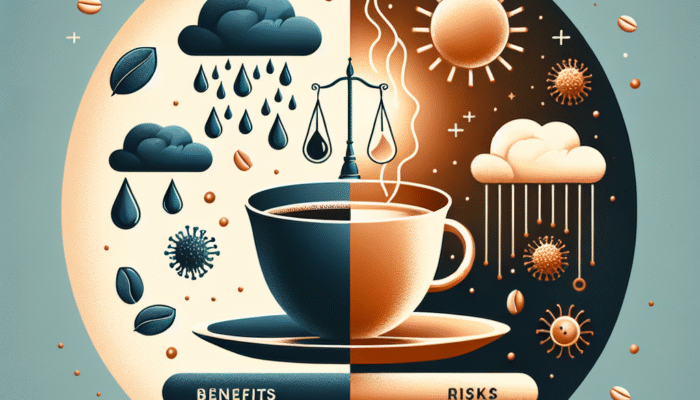
Coffee and Insomnia: How to Break the Cycle
For many of us, coffee is a daily ritual. The rich aroma, the warmth of the cup, and the buzz it brings makes it a beloved beverage. However, while coffee can provide a much-needed energy boost, it can also be a significant contributor to insomnia, leading to a vicious cycle of sleeplessness and caffeine dependency. In this blog post, we’ll explore the relationship between coffee and insomnia and offer practical tips to help you break the cycle.
The Science Behind Coffee and Insomnia
Coffee contains caffeine, a natural stimulant that affects the central nervous system. When consumed, caffeine blocks the action of adenosine, a neurotransmitter that promotes sleep. This blockage leads to increased alertness and wakefulness. While this can be beneficial during the day, excessive caffeine intake, especially in the afternoon or evening, can significantly impact your ability to fall asleep at night.
Understanding Insomnia
Insomnia is a sleep disorder characterized by difficulty falling asleep, staying asleep, or waking up too early. It can be caused by various factors, including stress, anxiety, medical conditions, and, of course, caffeine consumption. Chronic insomnia can lead to various health issues, including fatigue, irritability, and impaired cognitive function.
The Cycle of Coffee and Insomnia
For many, the cycle begins innocently enough. You feel tired in the morning, so you grab a cup of coffee to kickstart your day. As the hours go by, you may find yourself reaching for another cup to fend off the afternoon slump. However, this pattern can lead to overstimulation and difficulty winding down at night, making it hard to fall asleep.
Factors Contributing to the Cycle
- Time of Consumption: Drinking coffee too late in the day can interfere with your sleep cycle. Caffeine can remain in your system for several hours, so it’s essential to be mindful of when you consume it.
- Quantity: The amount of coffee you drink can also play a role. Consuming high quantities of caffeine can lead to increased anxiety and nervousness, further compounding sleep issues.
- Individual Sensitivity: Everyone metabolizes caffeine differently. Some may feel its effects more intensely, leading to greater sleep disturbances.
Recognizing Your Coffee Consumption Patterns
Breaking the cycle starts with understanding your current coffee consumption habits. Keep a journal for a week to track how much coffee you drink and note how it affects your sleep quality. Pay attention to:
- Your coffee intake (type, amount, and time of day)
- Your feelings of alertness or fatigue throughout the day
- Your sleep patterns (how long it takes to fall asleep, number of awakenings, etc.)
Tips to Break the Coffee and Insomnia Cycle
1. Gradually Reduce Caffeine Intake
Instead of quitting cold turkey, which can lead to withdrawal symptoms like headaches and irritability, consider gradually reducing your caffeine intake. Start by cutting back on the number of cups you drink each day or switching to a smaller size. You can also try mixing regular coffee with decaf to ease the transition.
2. Set a Caffeine Cutoff Time
Establish a cutoff time for caffeine consumption, ideally around noon. This will give your body ample time to metabolize the caffeine before bedtime. Replace your afternoon coffee with herbal tea or decaffeinated beverages.
3. Explore Alternative Beverages
If you love the ritual of drinking coffee, consider alternatives that are lower in caffeine. Some great options include:
- Green tea
- Chai tea
- Herbal tea
- Decaffeinated coffee
4. Create a Relaxing Bedtime Routine
Developing a calming pre-sleep routine can signal to your body that it’s time to wind down. Activities such as reading, meditating, or taking a warm bath can help relax your mind and prepare you for restful sleep. Avoid screens for at least an hour before bedtime, as the blue light emitted can interfere with melatonin production.
5. Prioritize Sleep Hygiene
Implementing good sleep hygiene practices can significantly improve your sleep quality. Here are some tips:
- Keep your bedroom dark, cool, and quiet.
- Stick to a consistent sleep schedule, going to bed and waking up at the same time every day.
- Limit naps during the day, especially in the late afternoon.
6. Seek Professional Help if Needed
If your insomnia persists despite making lifestyle changes, it may be time to seek professional help. A healthcare provider can assess your situation, provide guidance, and suggest potential treatments, including cognitive-behavioral therapy for insomnia (CBT-I) or medication if necessary.
Conclusion
While coffee can be a delightful part of your daily routine, it’s essential to be mindful of how it affects your sleep. By understanding the relationship between coffee and insomnia and taking proactive steps to break the cycle, you can enjoy your favorite beverage without sacrificing your sleep quality. Remember, a good night’s sleep is crucial for your overall health and well-being.
Are you ready to take control of your coffee consumption and improve your sleep? Start today and see how small changes can lead to a more restful night!


